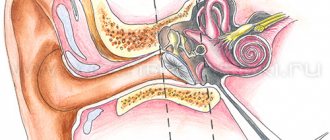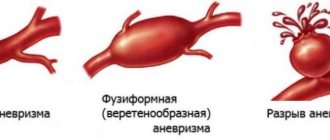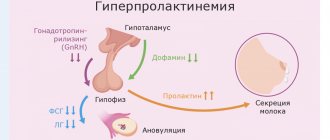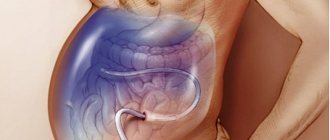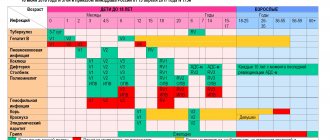In our age of overabundance of information, stress and crazy speeds, the problem of mental health, or more precisely, ill-health, is becoming almost the most important.
As you know, mental health, the same “healthy spirit” that ancient healers loved to talk about, is an integral component of health in general. Alas, the features of modern life make us extremely vulnerable to various mental disorders. And the disease does not distinguish whether the person in front of it is young or old, man or woman.
In terms of prevalence, mental health disorders are now among the leaders after cardiovascular diseases and cancer. According to WHO, more than 560 million people on the planet already suffer from various mental illnesses. And almost every second person is in danger of contracting a mental illness during their lifetime.
Very often, serious psychoneurological diseases such as neurosis and psychosis .
1 Diagnosis and treatment of neurosis
2 Diagnosis and treatment of neurosis
3 Diagnosis and treatment of neurosis
The first signs of acute psychosis
The first symptom of the disorder is social maladaptation: there is a sharp change in lifestyle, a change in interests, ignoring home and work responsibilities, and absurd statements and actions. Any acute psychosis goes through several stages, which are not always noticed by the patient’s relatives.
As a rule, it all starts with disturbances in night sleep, anxiety, decreased or inappropriately elevated mood, and eating disorders. During this period, the patient can focus on issues that did not interest him before, giving events a “magical meaning.”
As the disease progresses, hallucinations are added to the experience: the patient hears non-existent voices, feels a “change in the world around him,” begins to feel surveillance and influence from the outside, as if someone is controlling his thoughts, and sees “signs” around him. These experiences are accompanied by an intense feeling of fear.
There is no need to hope that “everything will go away on its own,” it won’t!
Quite often in the practice of a psychiatrist there are cases of suicide or harm to others under the influence of psychotic experiences.
Speaking about the nature of the disease, it is necessary to explain what exactly happens in the human brain at this moment. It is known that an imbalance of neurotransmitters, substances that are involved in the transmission of nerve impulses in the cerebral cortex, is to blame. When substances become inappropriately more or less, the human brain begins to work incorrectly.
It is possible to return the balance to its place in the first days of therapy, only with the help of medications; in the future, psychological and psychotherapeutic help and support from relatives are very important
MOST FREQUENTLY ASKED QUESTIONS ABOUT PSYCHOSES
There is currently a strong interest in the topic of psychosis (schizphoria, etc.) in society. The very concept of psychosis is perceived in different ways: from curiosity to fear. The phenomenon of psychosis is incorrectly and erroneously often used in philistine psychology. All sorts of prejudices and myths, on the one hand, see psychosis where there is none, and on the other hand, they prevent people from noticing and recognizing changes in time, both in themselves and in their loved ones. There is a denial of the problem out of fear of being branded a “crazy person.” Whereas timely seeking help from a specialist can help prevent the development of a serious disorder. The lack of adequate information gives rise to distrust in doctors, the emergence of a large amount of unfounded information both in the media and on the Internet, which undermines not only trust in the medical service, but also makes life difficult for those who suffer from this kind of disorder. People can become victims of healers and fortune tellers who speculate on this complex phenomenon. We have selected the most frequently asked questions, the answers to which must be given not only to the patients themselves and their relatives, but also to simply people who want to understand this phenomenon.
1.What is psychosis? Psychoses are manifestations of mental disorders, often chronic, which manifest themselves as disturbances in 4 main areas: perception, thinking, emotions and will, behavior and interaction with the outside world. In the realm of perception, we are talking about hallucinations, that is, actually and plausibly seeing, hearing or feeling something that does not actually exist. A thinking disorder manifests itself as delusion, that is, false, irrational judgments that are subjective in nature. Emotional disturbances can range from excessive activity, agitation with aggression and irritability to complete lack of will and isolation. Also in behavior, a person ceases to take into account social roles and the context of situations, to understand others; one may notice a stereotypical repetition of movements or performance of rituals. In psychiatry there is the concept of negative and positive symptoms. Positive symptoms are those mental phenomena that were not previously present in the psyche, but have appeared (delusions, hallucinations, aggression). Negative symptoms are those mental qualities that have begun to be lost and erased (unemotionality, memory loss, loss of social contacts). All these phenomena lead to a loss of connection with the outside world and interfere with the correct interpretation of reality, which explains one of the main signs of psychosis - a lack of criticality.
2.Can neurosis turn into psychosis? Psychosis is a disorder that is characterized by gross disturbances of the emotional-volitional sphere, changes in thinking and is accompanied by impaired criticality of one’s condition with impaired ability to distinguish internal experiences from external sources. With neurosis, emotional or physical manifestations of internal conflict come to the fore without disrupting thinking and being overly critical of one’s condition. Biological causes predominate in the occurrence of psychoses, while intrapersonal conflicts play a leading role in the occurrence of neuroses. The mechanisms underlying neurosis and psychosis are so different from each other that one does not transform into the other.
3. Can psychosis be cured? There are acute (transient) psychoses, which can more often be caused by acute stressful situations (life-threatening situations, loss of a loved one), intoxication (alcohol, popularly “delirium tremens”), infection (with meningitis), severe physical illness (with a heart attack). myocardium), with timely and correct drug treatment, their complete cure is possible without maintaining residual signs. In cases of chronic psychosis (example: schizophrenia, bipolar affective disorder), the course can be long. As with any chronic disease, there are periods of complete health, doctors call them remissions, and periods of exacerbation of the disorder. The prognosis largely depends on the correct treatment started in a timely manner.
4.What causes psychosis? Currently, medicine has adopted a multifactorial model, which shows that the development of the disease is influenced by a combination of several causes. The predominant reasons are still biological: changes in metabolism in the brain, namely the substance dopamine, which serves impulses, emotions, feelings of pleasure and motor activity, affects the severity of symptoms and their nature. In addition, psychosocial reasons can be identified: conflicts, mental trauma, tension, disharmonious relationships in the family, which will affect the course of the disease and the recovery process.
5. Is it possible to get psychosis if a relative suffered from it? There is a pattern that says that the closer the degree of relationship, the higher the risk of getting sick. However, it is worth remembering that predisposition is inherited. For the development of the disease itself, a combination of many factors is necessary. Currently, there are no reliable formulas by which this probability could be determined. The heredity factor plays the same role as in cancer, diabetes and arterial hypertension. It is known that if both parents suffered from the disease, then the risk is 50%, if only one of them, then the risk is estimated at 25%
6. Can psychosis be cured without medication? Unfortunately no. Since biological causes are dominant in the occurrence of psychoses, a special group of drugs is used to treat psychoses - antipsychotic drugs, another name for neuroleptics. Their effectiveness has now been proven and they are widely used in practice. Drug therapy is currently the most reliable and effective way to cope with acute symptoms and prevent their return. It is important that drug therapy is combined with individual and/or family psychotherapy, which will help the sufferer and his loved ones develop a real understanding of the disorder, teach them to cope with it, and take measures to prevent it. The social rehabilitation program will help you return to normal daily activities by restoring and improving social skills (communication with others, daily routine activities, rational behavior).
7. Are people in psychosis dangerous to others? In the acute stage of psychosis, when the understanding of reality is greatly impaired, i.e. it is misperceived (hallucinations), interpreted (delusions), and it is also impossible for a person to control his impulses, he can be dangerous to himself and others. However, the likelihood of an attack is quite low, because... The main experience of such patients is horror and anxiety, while rage and anger are secondary. It is very important then to behave correctly. Do not argue or convince a person that what is happening is wrong, do not find out the details of his experiences, and hide dangerous objects. You need to listen to him carefully and try to calm him down, ensure a calm environment, shouting or arguing is not allowed, stress in such a situation should be minimized. Try, but only if the person is calm, to persuade him to see a doctor. In other situations, you can seek emergency help.
8. Are people with psychosis able to work? A mental disorder is just like any physical illness, just like any physical illness, it can impose its limitations. People who experience psychosis exhibit disturbances of impulse to act and will, which should not be considered signs of human or moral weakness. The “pull yourself together” approach is similar to treating deafness through “willpower”. People suffering from psychosis may experience certain difficulties and, as a result, restrictions in performing work activities. Sometimes this requires the creation of certain conditions on the part of the employer (reducing the load, working hours, intensity, complexity of the work performed). At the same time, work is very important for such people, because... contributes to the preservation and restoration of thought processes, motivations and activity. However, in some cases, the disorder does not affect activity in any way, as evidenced by the examples of many talented scientists, writers and artists.
9. How dangerous are antipsychotic drugs? All antipsychotic drugs have a certain range of side effects. It is important to carefully select the type of drug and dose, taking into account the symptoms of the disease, age, and state of physical health. Currently, there are antipsychotics, when taken, the development of unpleasant side effects is minimized. There are also injectable forms of the drug, which can be taken 1-2 times a month. Trust in the doctor, agreement and discussion with him of the manifestations of the disease and side effects, setting realistic goals for treatment and adherence to the chosen treatment tactics are also of great importance.
10.Can people with psychosis start a family and have children? As with any disorder, this is not an obstacle. However, the partner must have complete, comprehensive and adequate information about the disease, its course and manifestations. It is also worth discussing in advance with doctors - geneticists, gynecologists, psychiatrists - all possible risks for future children and the process of the course and management of pregnancy. Therefore, it is necessary to approach this issue with greater prudence and become familiar with pregnancy planning methods.
11.Are people with psychosis able to make important decisions on their own? Yes, if the disease is in remission and there are no gross disturbances in the area of thinking. The overwhelming majority of people suffering from psychosis during health are indistinguishable from people without a mental disorder. It is worth remembering that basically there is no total defeat of the personality, but only some of its aspects and functions suffer. Therefore, with timely treatment and adequate treatment in combination with rehabilitation methods, it is possible to relieve acute symptoms and return a person to a full life.
With timely, proper treatment and organization of life with psychosis, incl. with schizophrenia, you can live a full life: study, work, have a family and children, favorite activities and friends.
First aid for psychosis
You cannot treat psychosis on your own. Traditional methods or attempts to ignore the disease will lead to worsening. If you notice signs of a psychiatric disorder in a loved one, you should consult a doctor.
In acute forms of the disorder, hospitalization is indicated. Before the ambulance arrives, the person nearby can try to alleviate the patient’s condition:
- Ensure peace and quiet.
- Sit next to him, but not in front of him, and constantly talk.
- Don’t argue, listen, ask more questions about his thoughts and experiences, distract him from depressive thoughts.
- Ensure the safety of others and the patient himself. Exacerbations are often accompanied by aggression and a desire to harm oneself.
- When transporting him to the hospital, be nearby, support him, and convince him that his life is not in danger.
First aid will be provided better if you tell doctors in detail about all the features of the patient’s behavior. Every little thing can make a difference.
Causes of reactive psychoses
This is a traumatic situation that has a strong stressful effect on a person.
The situation may pose a threat to life or well-being and is associated with character traits, environmental conditions, and beliefs. Reactive psychoses can occur during accidents, catastrophes, natural disasters, losses, imprisonment or the threat of legal liability, etc. In the appearance of reactive psychoses, an important role is played by the initial functional state of the central nervous system (CNS), the personal characteristics of the patient before the onset of the disease, the typological properties of his nervous system. All factors combined make a given person more (prone) vulnerable to the occurrence of mental trauma.
Classification of reactive psychoses
In accordance with ICD-10, reactive psychosis can be observed in the following conditions: • acute and transient disorders (F23);
• depressive episode (F32); • acute reaction to stress (F43); • post-traumatic stress disorder (F43.1); • adaptation disorders (F43.2); • dissociative (conversion) disorders (F44). There are many forms of reactive psychoses. Various psychopathological syndromes alternate or predominate. The course of the disease is wavy, the duration varies depending on the initial state of a particular person and the form of psychosis.
The group of reactive psychoses can also be replenished with psychotic states, which represent one of the stages in the development of post-traumatic stress disorder
There is no generally accepted classification of reactive states, but from the point of view of clinical manifestations, several forms can be distinguished:
1. acute reaction to stress (affective-shock reaction) 2. hysterical psychoses 3. psychogenic depression 4. psychogenic mania 5. psychogenic paranoids
You can also classify according to the duration of exposure to the traumatic event:
Protracted reactive psychoses. Develops in a person with prolonged exposure to a traumatic situation (delusions, obsessive states, depression). Subacute. Occurs after exposure to psychological trauma (reactive depression, hysterical psychosis, paranoid states) Acute. Appears immediately after a traumatic event.
How is psychosis treated?
It should be noted that it is impossible to cure psychosis at home. You should not take medications without specialist supervision. To determine the cause of the problem, you will need the help of a qualified professional.
If you or your loved one is faced with a similar problem, contact medical centers. There are doctors who will not only determine the cause of the problem, but also prescribe the optimal treatment method. After some time, the person will return to normal life again, because his mental health will be restored.
Course of the disease, prognosis
Psychosis usually develops within a few hours of psychological trauma.
The duration of psychosis ranges from several hours to several months, but this time may vary. Psychogenic motor excitation has a short course, the output is acute with restoration of orientation, but with amnesia for the period of psychosis. Psychomotor retardation with mutism also has an acute outcome and is accompanied by brief asthenia. The way out of reactive depression is initially lytic, but from the moment the condition improves, there is a tendency to wave-like changes in the severity of symptoms. In general, the duration of the disease ranges from several weeks to 2-3 months. Reactive paranoid can last from several days to several months and depends on how much the traumatic situation has disappeared.
With effective therapy, the prognosis of the disease is favorable. Treatment and its duration are determined by the mobility of symptoms, the good initial (before the disease) condition of the patient, the duration of symptoms, as well as the presence of cases of mental disorders in heredity. It should be remembered that reactive psychoses can also occur in patients with a history of chronic mental illnesses. In this case, the symptoms may be influenced by the underlying psychopathological condition.
Questions and answers
How long does inpatient treatment for psychosis last?
The doctor determines the duration of each hospitalization individually, taking into account the patient’s condition. It depends on the nature of the disease, the need for examination to establish a diagnosis, and the time for selecting a treatment regimen. You can ask questions to the doctor before hospitalization.
Is it possible to accommodate a patient in a single room for the treatment of senile psychosis?
The clinic has rooms for one person. They are indeed more convenient for individuals who need silence. You can check the availability of beds by calling the hospital.
How often do patients with manic psychosis agree to hospital treatment?
In conversations with relatives, such patients do not admit the presence of health problems. But after a course of treatment, they understand that such behavior could only be stopped by seeing a doctor and try to take supportive treatment.
Is it possible to call a doctor to the home of a patient with psychosis and resolve the issue of hospitalization on the spot?
Yes, sure. To do this, you need to call the clinic and make an appointment. If you have any questions, a hospital employee will advise you on this issue free of charge.
Is it possible to treat senile psychosis on an outpatient basis? We wouldn't want to put mom in the clinic.
Treatment of psychosis without hospitalization is indeed possible. The psychiatrist will consult the patient on an outpatient basis or at home and tell you what kind of help will be most effective.
Diagnosis of reactive psychoses
It is important to carry out a differential diagnosis; the symptoms of reactive psychoses are similar to the symptoms of diseases such as schizophrenia, manic-depressive psychosis, delusional disorders, endogenous and psychogenic depression, drug or alcohol intoxication, etc. The diagnosis is made based on the medical history, anamnesis, clinical picture, presence traumatic event and the connection of symptoms with psychotrauma. For example, reactive depression differs from the first depressive phase of circular psychosis (which has a psychogenic onset) in that patients are fixated on traumatic thoughts rather than on their own personality, while the patient justifies melancholy and suicidal thoughts with traumatic events.
Acute polymorphic psychotic disorder with symptoms of schizophrenia
Psychotic and affective symptoms are stable. There are no sudden changes in behavior or mood. The onset of the disease is within two weeks after the occurrence of the provoking factor. Symptoms are typical for schizophrenia:
- depressive moods;
- echo of thoughts;
- expression of inappropriate emotions;
- various kinds of hallucinations;
- persecution mania.
To diagnose this disorder, it is important to conduct a thorough examination of the patient. It is necessary to exclude the fact of schizophrenia, schizoaffective psychosis or bipolar disorder, the presence of traumatic brain injuries, the influence of toxic, psychoactive substances on the body. The following diagnostic methods are mandatory:
- general blood analysis;
- electroencephalography;
- interviewing the patient;
- survey of relatives;
- Neurotest;
- Neurophysiological test system.
Symptoms of reactive psychosis
1. Shock psychogenic reactions (shock neuroses, affective-shock reactions, emotional neuroses)
Psychosis occurs due to a sudden strong emotional shock or a life-threatening situation (accident, catastrophe, etc.), all of which can be associated with situations of a negative nature. Affective shock psychoses can manifest themselves in two forms: psychomotor retardation and psychogenic motor agitation. Psychomotor retardation with mutism. The disease manifests itself as complete immobilization and the inability to establish speech contact. The patient is unable to move or call for help, even in a potentially dangerous situation. In this condition, the patient is in clear consciousness, perceives events around him, but does not react to what is happening. Psychogenic motor agitation begins acutely, in the presence of psychotrauma. General psychomotor agitation occurs, the patient is restless, makes aimless movements, speech is usually slurred, and a grimace of horror or fear may be expressed on the face. Impaired consciousness is present.
2. Hysterical psychoses (psychogenic twilight states)
Hysterical psychoses are a common type of reactive states.
They are characterized by symptoms of any type of clouding of consciousness (disorientation, no reaction to events occurring around them, disruption of object contact, etc.). Clouding of consciousness can be traced to a connection with mental trauma. Hysterical psychoses are often divided into three types: pseudodementia, puerism, and hysterical twilight stupefaction. Pseudo-dementia
- the patient suddenly becomes “stupid”, cannot solve the simplest problems, gives ridiculous answers, and is disoriented.
Ganser syndrome is a type of pseudodementia that affects people in prison. Puerilism
is characterized by regression of the psyche to the level of a child.
The form of speech, behavior, emotional reactions become similar to children's. This clinical picture may include elements of adult behavior. Hysterical twilight states
occur in persons with hysterical psychopathy. Patients are demonstrative and can act out scenes in which there is a connection with psychotrauma. There is a perception disorder (true hallucinations), the statements are delusional, they also reflect the traumatic situation suffered.
3. Psychogenic depression (reactive depression)
Psychogenic depression is the most common form of reactive states. It is characterized by: decline in mood, feeling of depression, the patient is careless, stops taking care of himself. As depression deepens, depressive delusions (constant feelings of guilt) and often suicidal thoughts appear. The main cause of anxiety is the psychological trauma that caused the disease. The course is wavy, relative to the severity of symptoms. In clinical practice, there are three more variants of reactive depression: asthenic, depressive-delusional, hysterical psychogenic.
4. Psychogenic manias
Psychogenic manias are much less common than other reactive states. The cause of occurrence is sudden severe psychotrauma that causes a state of passion. A predisposing factor to psychogenic mania may be the presence of psychopathy of the affective and hysterical type, or schizotypal personality disorder. The clinical picture is characterized by irritability, fussiness, increased activity, and unreasonable joy. There is often a combination of opposing emotions present. A sleep disorder occurs (insomnia, restless sleep, difficulty falling asleep, shortened sleep time) associated with replaying memories of traumatic events. The patient is energetic and strives to do everything possible to improve his traumatic situation. At the peak of affect, productivity is lost, hyperactivity, importunity, and conflict come to the fore. The delirium of litigiousness and the desire to punish those “culpable” in the event may join.
5. Psychogenic paranoids
(reactive paranoid, psychogenic paranoid delusional formation, induced delusion) Reactive paranoid develops as a result of an unfavorable situation for the patient, there is a delusional belief that he is being watched, everyone around him is an enemy, treats him badly and wishes harm, etc. Auditory hallucinations often appear, which confirm the patient's beliefs. The development of an acute condition occurs after a short preceding period, with a feeling of anxiety, fear that something bad is about to happen. Psychotraumatization occurs after a new, unusual situation for the patient, combined with external impressions that create an atmosphere of anxiety, uncertainty, and anxiety.
Psychogenic paranoid delusional formation
- a type of reactive psychosis, does not have an acute onset, develops over a long period of time and gradually develops (sometimes several years). The disease is more common in individuals with paranoid psychopathy. Development occurs in conditions of chronic psychotraumatization. The delusion is systematized, based on the interpretation of real events and the situation surrounding the patient. With a prolonged course, delirium becomes persistent and persists for many years.
The patient loses the ability to work and care for himself. Memory, intelligence, adequacy and expression of emotions are not affected.
Induced delusion manifests itself in the “transition” of mental disorders from one person to another. Such a transition is observed in conditions of close communication between several individuals, while one of the individuals suffers from psychosis and is the source of induction - the inducer. A person who perceives these disorders is called inducible.
There are a number of conditions that promote psychic induction:
• close communication (cohabitation, common work or personal relationships) of the inducer and the inducible • the initial mental superiority of the inducer over the inducible (intellectual, social or characterological) • mental weakness, suggestibility of the inducible Themes of induced psychoses are most often associated with delusions of persecution, jealousy, and litigiousness.
Symptoms of psychotic disorder
Symptoms are varied, individual in nature, and may change over time. Main signs: delusions and hallucinations. The latter represent extraordinary sensory sensations that are incomparable with reality. For example:
- vision of images, paintings;
- hearing voices;
- sensation of touch;
- sensation of smells, tastes.
Hallucinations can be tactile, auditory, olfactory, visual, or somatic. An image appears in thinking without an external stimulus. A person can be in a world of dreams and unfulfilled fantasies. A deceptive perception of reality can be observed when:
- severe fatigue;
- taking psychoactive substances;
- neurological diseases;
- schizophrenia.
This mental disorder is also characterized by delusional ideas. A person insists on his point of view, despite the fact that there is clear evidence and logical explanations for his wrongness. The patient may feel as if someone is constantly following him. These could be the intelligence services of various states, as well as mythical creatures and aliens. In other cases, the patient feels that his husband/wife is constantly cheating on him. Some patients may experience delusions of grandeur. They are simply convinced that they are able to perform various miracles, that they are prophets. Others consider themselves descendants of a noble family. Delusion can also manifest itself in relation to one’s sexuality. It seems to the patient that all strangers fall in love with him at first sight. Unrealistic ideas may appear due to:
- infection with an incurable disease;
- the imminent end of the world;
- creation of a perpetual motion machine;
- carrying out ridiculous social reforms;
- parasite infestation.
You should also consult a doctor if you notice the following symptoms:
- slurred speech;
- illogical thinking;
- inappropriate behavior;
- indifference to appearance;
- excessive irritability;
- tendency to harm one's health;
- lack of plans for the future;
- inhibition of actions and thoughts;
- apathy towards everything that happens;
- depressive moods.
Relatives can call a doctor to your home. Don't wait for the situation to get worse. It is possible to change the life of a loved one for the better. Don't be afraid to tell a specialist about your problem. We are ready to listen right now, provide confidentiality, and provide effective assistance.
How to suspect symptoms yourself
The fact that the husband has psychosis with hallucinations is evidenced by causeless laughter, conversations with himself, a sudden cessation of dialogue when he feels that the patient is listening to something. There may be a subjective feeling that the other person is hearing or seeing something that you cannot notice.
You can suspect delusion by a change in attitude towards loved ones , unreasonable secrecy, suspicion and hostility. Dubious and implausible phrases about one’s own greatness and persecution by others, and fears for one’s life testify in favor of delusional disorder. At the level of experience, panic, anxiety, fear are possible, at the level of behavior - locking doors and curtains of windows, which are given some special meaning, refusing food or carefully checking any dishes, litigious activity.
It should be borne in mind that a man in psychosis can pose a danger to himself or others. He is unable to soberly assess reality and his own actions. If these symptoms are present, you should contact a specialist. If the patient is friendly, he can be persuaded to see a psychiatrist. If cooperation is impossible or difficult, it is recommended to call a special ambulance team.
Treatment of neuroses and psychoses
Only a neurologist (psychoneurologist, psychotherapist, psychiatrist) who has undergone appropriate training and has sufficient practical experience in helping patients with neurological and mental disorders can conduct a competent diagnosis of the disease, identify its causes and offer adequate treatment.
Treatment of psychoses and neuroses (including treatment of neurasthenia) is, as a rule, a whole complex of measures that includes many stages.
So, a combination of the following methods helps to achieve a good result:
- drug therapy;
- phytotherapy;
- psychotherapy;
- hardware treatment;
- water procedures;
- reflexology;
- special gymnastics;
- therapeutic diet, etc.
A positive attitude, the right environment, a normal family environment, maintaining a healthy lifestyle, maintaining a work and rest schedule, and eliminating “stress-forming” factors (even changing your place of work or area of residence) are extremely important for recovery.




